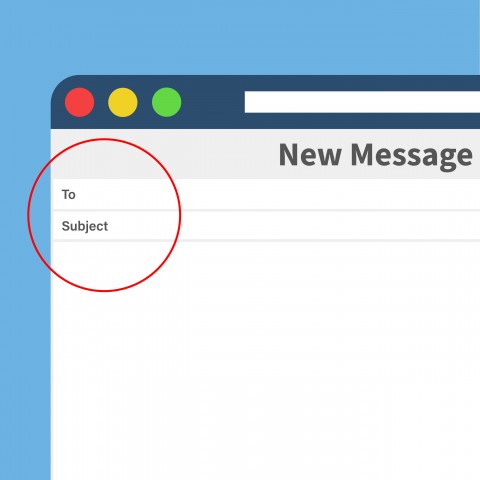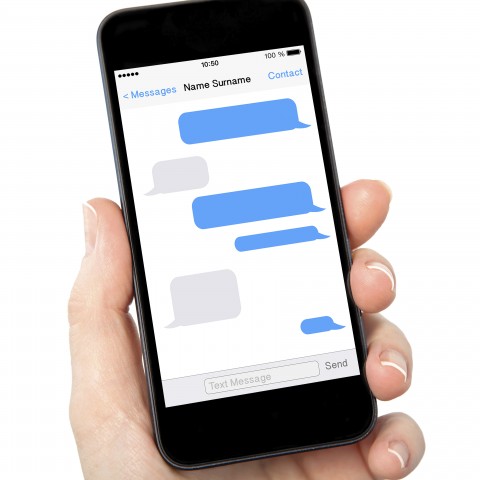
Newton’s First Law of Motion states that a body at rest will remain at rest unless acted upon by another force. This would seem to apply to conversations, especially with strangers or new acquaintances, and particularly when you are trying to strike up a conversation in a language other than your mother tongue. But fear not! We here at HebrewPod101 have curated the top 35 conversation starters in Hebrew to help you get things rolling.
 Table of Contents
Table of Contents
- First Impressions Count – So Make Your Conversation Count!
- Conversation Starters for Mingling and Socializing
- Conversation Starters for Your First Day at School or Work
- Conversation Starters for a First Date
- Bonus: Helpful Language for Starting Up a Text or Email Conversation
- HebrewPod101 Is Here to Help You Get Things Rolling…and Keep Them Rolling!
1. First Impressions Count – So Make Your Conversation Count!

Whether you’ve just met someone at a party, are trying to make small talk with the passenger seated beside you on a long bus ride, or are trying to leave a good impression on your first day of school or work, you always want to leave as positive an impression as possible (unless, perhaps, you’re trying to blow someone off!). Therefore, it’s a great idea to be comfortable greasing the wheels, so to speak, with some easy Hebrew conversation starters that will be sure to get things flowing.
No matter what situation you may find yourself in, we’ve got you covered. Below you’ll find a compilation of basic Hebrew conversation starters, including both for conversing the old-fashioned way as well as for texts and emails. We’ve included language that will help you deal with new social scenes, such as parties or other events involving mingling, helpful language for first days in a new school or work setting, romantic conversation starters for a first date, and even some starters for emails and texts.
It may go without saying, but we can’t emphasize enough that to really be sure your Hebrew flows, you’ll need to be well equipped for whatever direction these conversations may take. As essential as it is to know how to get the ball rolling, it isn’t of much use knowing how to start a conversation if you can’t sustain it. With this in mind, apart from practicing the language presented in this lesson, it’s also a great idea to spend time on the grammar points and vocabulary relevant to the setting you’ll be in.
Make use of HebrewPod101’s vast library of lessons to find exactly what you need so you’re ready to face any conversational challenges that come your way!
2. Conversation Starters for Mingling and Socializing

One of the most outstanding features of Israeli culture is that Israelis are quite gregarious. Indeed, don’t be surprised if you find yourself invited to social events frequently, even if you’ve only just met someone for the first time. Every society obviously has some general rules for making a good first impression when you find yourself in a new social milieu, and Israel is no different.
Obviously, you want to converse, meaning you should try to talk in a way that invites the other party to engage. You can do this by asking questions to get to know the other people around you and follow-up questions to keep the conversation going. This helps to show you are interested and paying attention.
So why not show up to your next Israeli meet-and-greet with some well turned phrases and questions honed and ready to go, so that you can be the one to impress everyone and get the conversation flowing? Here are our top conversation starters for mingling and socializing. Note how the words change depending on whether you are addressing a male or female.
1. איך הכרתם? / איך אתם מכירים?
Eikh hikartem? / Eikh atem makirim?
“How did you meet? / How do you know each other?”
2. מה אתה אוכל/שותה / את אוכלת/שותה?
Mah atah okheil/shoteh? / Mah at okhelet/shotah?
“What are you eating/drinking?”
3. כמה זמן לקח לך להגיע?
Kamah zman lakakh lekha/lakh lehagi’a?
“How long did it take you to get here?”
4. במה אתה עובד / את עובדת?
Be-mah atah oved / at ovedet?
“What do you do for a living?”
5. בא לך משהו לאכול/לשתות?
Ba lekha/lakh mashehu le’ekhol/lishtot?
“Would you like something to eat/drink?”

6. אתה גר / את גרה קרוב?
Atah gar / at garah karov?
“Do you live nearby?”
7. יש לך חיות מחמד?
Yesh lekha / lakh khayot makhmad?
“Do you have any pets?”
8. מה למדת באוניברסיטה?
Mah lamadeta / lamadet ba-universitah?
“What did you study at university?”
9. יש לך תחביבים?
Yesh lekha / lakh takhbivim?
“Do you have any hobbies?”
10. איפה שירתת בצבא?
Eifoh shirateta / shiratet ba-tzava?
“Where did you serve in the army?”
*Note that this last one is common in Israel, as military service is obligatory for males and females.
3. Conversation Starters for Your First Day at School or Work

Just as important as your first impressions in social settings is getting things started on the right foot when you begin a new job or enroll in school. It is immensely important to put your best foot forward in these situations, so once again, you’ll want to be armed with some solid go-to phrases and questions you can draw on to strike up a conversation with your new work- or classmates, and to keep the conversation going.
Something to note is that even Israeli culture has somewhat less of a range in terms of register. This means that Israelis tend to be less formal than their counterparts from other countries in situations where formality may be expected. That having been said, gauge your surroundings and the people with you, and make every effort to adjust your register accordingly. Now, without further ado, here are the top conversation starters for school and work.
11. שלום, קוראים לי … איך קוראים לך?
Shalom, korim li … Eikh korim lekha / lakh?
“Hi, I’m … What’s your name?”
- שלום, קוראים לי ריקי. איך קוראים לך?
Shalom, korim li Riki. Eikh korim lakh?
“Hi, I’m Ricky. What’s your name?”
12. סליחה, אני חדש / חדשה כאן ולא ממש מתמצא / מתמצאת. האם תוכל / תוכלי להגיד לי איפה ה…?
Slikhah, ani khadash / khadashah kan ve-lo mamash mitmatze / mitmatzet. Ha’im tukhal / tukhli lehagid li eifoh ha…?
“Sorry, I’m new here and don’t really know my way around. Could you tell me where the … is/are?”
- סליחה, אני חדשה כאן ולא ממש מתמצאת. האם תוכל להגיד לי איפה המדפסת?
Slikhah, ani khadashah kan ve-lo mamash mitmatzet. Ha’im tukhal lehagid li eifoh ha-madpeset?
“Sorry, I’m new here and don’t really know my way around. Could you tell me where the printer is?”
13. אפשר להצטרף אליך לארוחת צהריים?
Efshar lehitztaref elekha / elaikh le-arukhat tzohorayim?
“Can I join you for lunch?”
14. כמה זמן אתה לומד/עובד / את לומדת/עובדת כאן?
Kamah zman atah lomed/’oved / at lomedet/ovedet kan?
“How long have you been working/studying here?”
15. אהבתי את ה… שלך. איפה קנית אותו?
Ahavti et ha… shelkha / shelakh. Eifoh kanita / kanit oto?
“I like your … Where did you buy it?”

- אהבתי את הצעיף שלך. איפה קנית אותו?
Ahavti et ha-tza’if shelakh. Eifoh kanit oto?
“I like your scarf. Where did you buy it?”
16. בא לך להיפגש אחרי העבודה/השיעור?
Bah lekha / lakh lehipagesh akharei ha-‘avodah/ha-shi’ur?
“Would you like to get together after work/class?”
17. אתה יכול / את יכולה אולי לעזור לי עם …?
Atah yakhol / At yekholah ulai la’azor li ‘im…
“Might you be able to help me with…?”
- אתה יכול אולי לעזור לי עם הפקס הזה?
Atah yakhol ulai la’azor li ‘im ha-faks ha-zeh.
“Might you be able to help me with this fax?”
18. אמרו לי שאתה יודע / שאת יודעת איך …
Amru li she-atah yode’a / she-at yoda’at eikh …
“I was told you know how to …”
- אמרו לי שאת יודעת איך לחייג לחו”ל.
Amru li she-atah yode’a eikh lekhai’eg le-khu”l.
“I was told you know how to place an international call.”
19. אני הולך להכין לי … בא לך גם?
Ani holekh lehakin li … Ba lekha / lakh gam?
“I’m going to make myself … Would you like some, as well?”
- אני הולך להכין לי כוס תה. בא לך גם?
Ani holekh lehakin li kos teh. Ba lekha gam?
“I’m going to make myself a cup of tea. Would you like some, as well?”
20. איפה אני מוצא / מוצאת את ה…?
Eifoh ani motze / motzet et ha…?
“Where might I find the …?”
- איפה אני מוצאת את השירותים?
Eifoh ani motzet et ha-sherutim?
“Where might I find the bathroom?”
4. Conversation Starters for a First Date

While we at HebrewPod101 can’t claim to be world experts on romance, we do know that there’s nothing quite like burgeoning love to put butterflies in your heart and a lump in your throat. And one thing is for sure. As nervous as you may be on a first date, or even at the prospect of mustering up the courage to ask for one, practicing the right language for the moment can give you a bit of a confidence boost just where you need one.
Of course, each of us is different, and what may strike one person as a compliment can give offense to another. Therefore, use the language below with discretion, as matters of the heart are the trickiest of them all! And don’t be afraid to mention that you are still learning Hebrew, although we don’t recommend repeating it over and over, either. Just do your best, and that’s what will shine through. Don’t forget that many a couple has been forged around language learning, and much language learning seems to center around romance! Indeed, we think romance is one of the greatest motivators for learning language you’re likely to find!
21. אתה נראה / את נראית מדהימה!
Atah nir’eh / At nir’et madhimah!
“You look great!”
22. טוב לראות אותך.
Tov lir’ot otkha / otakh.
“It’s good to see you.”
23. איפה גדלת?
Eifoh gadalta / gadalt?
“Where did you grow up?”
24. יש לך אחים?
Yesh lekha / lakh akhim?
“Do you have any siblings?”
25. איזה סוג של מוסיקה אתה שומע / את שומעת?
Eizeh sug shel muzikah atah shome’a / at shoma’at?
“What kind of music do you listen to?”
26. מה הסרט האהוב עליך?
Mah ha-seret ha-ahuv ‘alekha ‘alayikh?
“What’s your favorite movie?”
27. מה האוכל שאתה הכי אוהב / שאת הכי אוהבת?
Mah ha-okhel she-atah ha-khi ohev / she-at ha-khi ohevet?
“What’s your favorite food?”

28. מה אתה אוהב / את אוהבת לעשות בשעות הפנאי שלך?
Mah atah ohev / at ohevet la’asot be-she’ot ha-pnai shelkha / shelakh?
“What do you like to do in your free time?”
29. אתה אוהב / את אוהבת לטייל?
Atah ohev / At ohevet letayel?
“Do you like to travel?”
30. אפשר להזמין אותך ל …?
Efshar lehazmin otkha / otakh le…?
“Can I invite you (out) for a …?”
- אפשר להזמין אותך לבירה?
Efshar lehazmin otkha le-birah?
“Can I invite you out for a beer?”
5. Bonus: Helpful Language for Starting Up a Text or Email Conversation

Lastly, let’s take a look at some language you can use to send off a text or email. These are obviously a bit different, as you will have neither the benefit nor the potential challenge of immediate feedback from your co-conversationalist. In any case, many language learners do find it somewhat more comfortable to write a message, as they have time to draft, revise, and rethink it before it reaches the intended person.
We recommend practicing your Hebrew via both productive skills, spoken and written, as they are complementary skills. This means that when you strengthen one, you will also find you come out stronger in the other. So go ahead and text that colleague from work or that guy or girl you met at the party last weekend. Here are the top five conversation starters for emails and texts.
31. מה התוכניות לסופ”ש?
Mah ha-tokhniyot la-sofa”sh?
“What are your plans for the weekend?”
32. מזמן לא דיברנו. שלח / שלחי הודעה כשתוכל/כשתוכלי.
Mizman lo dibarnu. Shlakh / Shilkhi hoda’ah keshe-tukhal/tukhli.
“Long time no speak. Send me a message when you can.”

33. אני חייב / חייבת לספר לך על משהו הזוי שקרה לי. מתי נפגשים?
Ani khayav / khayevet lesaper lekha ‘al mashehu hazui she-karah li. Matai nifgashim?
“I have to tell you something crazy that happened to me. When can we get together?”
34. אני חייב / חייבת את העזרה שלך! איזה אחד נראה לך יותר טוב?
Ani khayav /khayevet et ha-‘ezrah shelkha / shelakh! Eizeh ekhad nireh lekha / lakh yoter tov?
“I need help! Which of these looks better to you?”
35. בא לך לשמוע בדיחה?
Ba lekha / lakh lishmo’a b’dikhah?
“Want to hear a joke?”
6. HebrewPod101 Is Here to Help You Get Things Rolling…and Keep Them Rolling!
Well, there you have it. We hope you’ve found today’s lesson stimulating and useful. As you surely know, there is, in fact, no perfect formula for starting up a great conversation, nor are there any guarantees that the person you’re talking to will follow your lead. However, when you come to a situation equipped with the relevant language and can apply it with fluency, you are far more likely to find a willing conversation partner on the other side of the table.
As always, our recommendation is not to try to soak up every single phrase here all at once but rather to focus on digestible chunks of language, a bit at a time. And it’s crucial you go over these not just once but rather periodically revisit them and practice them at intervals so you can be sure they get stored in your deep memory.
If you have any questions about the language presented in today’s lesson or want to know more about how to strike up a nice Hebrew conversation, don’t hesitate to reach out. Our professional staff of Hebrew teachers would be happy to hear from you and to help you however we can. Until next time, shalom!










